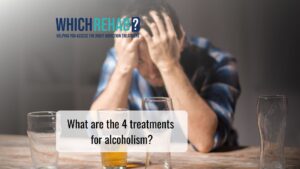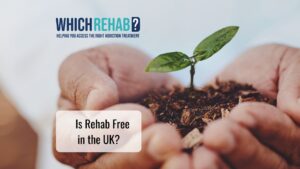A typical treatment plan for addiction is a comprehensive and individualised roadmap to recovery. It includes goals, objectives, and interventions that are tailored to meet the specific needs of the individual.
Let’s look at addiction treatment plans in more detail, to help you prepare yourself or your loved one for what’s to come in your recovery from addiction.
Ultimate Goal of Therapy

The ultimate goal of therapy in addiction treatment is to help individuals achieve long-term recovery from substance use disorders.
While the initial goal may be to achieve abstinence from drugs or alcohol, the ultimate goal goes beyond simply stopping substance abuse. It encompasses a holistic approach that focuses on helping individuals develop a healthy, fulfilling, and substance-free life.
Therapy aims to achieve several specific objectives in addiction treatment. These objectives include:
1. Helping individuals gain a better understanding of the underlying causes and triggers of their addiction.
2. Teaching individuals coping skills and strategies to deal with cravings, temptations, and challenging situations without resorting to substance abuse.
3. Assisting individuals in developing healthier behaviours and patterns of thinking to replace addictive behaviours.
4. Addressing any co-occurring mental health issues that may contribute to substance use disorders.
5. Supporting individuals in rebuilding relationships and improving their social support network.
6. Providing education and resources to help individuals make informed decisions about their recovery and manage relapse risks.
7. Promoting personal growth and self-discovery as individuals work towards a more meaningful and purposeful life.
By addressing these objectives, therapy helps individuals not only achieve abstinence but also move towards a sustainable and fulfilling recovery. It recognises that simply stopping substance abuse is only the first step in a lifelong journey towards healing and transformation.
A Quick Overview of a Typical Treatment Plan
There are a range of stages for each recovery plan:
- Initial Assessment
- Identification of attainable Goals
- Setting Objectives
- Interventions
DON'T STRUGGLE ALONE
Navigating the world of drug rehabs can be daunting. Let our team of rehab specialists guide you.
Initial Assessment
Initial assessment is a crucial step in developing an effective treatment plan for addiction. It involves gathering information about the client’s medical and mental health history, family history, substance use history, lifestyle, and current situation. This initial assessment provides a baseline of information that can be used to develop an individualised treatment plan for the client.
The purpose of the initial assessment is to determine if the individual is physically and emotionally ready to start the recovery process. It can also provide insight into any underlying issues that may be causing or contributing to the addiction.
Identification of Attainable Goals
Once the initial assessment has been completed, it’s important to identify attainable goals for treatment. Goals should be realistic and measurable, so that progress can be tracked. Goals may include reducing or eliminating substance use, improving social and family relationships, participating in counseling, developing healthy coping skills, or engaging in sober activities.
Setting Objectives
The next step is to set objectives that support the goals identified during the initial assessment. Objectives are specific tasks that need to be achieved in order to achieve the overall goal. Examples of objectives may include attending a certain number of therapy sessions, making daily contact with a sponsor, attending support group meetings, or engaging in healthy activities.
Interventions
The final step is to create interventions that address the individual’s needs and help them achieve their objectives.
Not to be confused with addiction interventions (where you try to make someone aware that something needs to change), Interventions may include medication-assisted treatments, counseling, 12-step programs, family therapy, lifestyle changes, and relapse prevention plans.
It’s important to note that interventions should be tailored to the individual’s needs, so that they are more likely to be successful.
It’s important to note that a treatment plan is highly personalised and adaptable. It is designed to evolve and change over time as the individual progresses in their recovery journey. Regular evaluations and assessments help determine when goals have been achieved and when changes or adjustments need to be made to the plan to address the individual’s changing needs.
A Quick Overview of a Typical Treatment Plan

Substance use disorders, also known as addiction, are complex and debilitating conditions that can have severe consequences for individuals and their families. These disorders involve the compulsive use of substances, such as drugs or alcohol, despite negative consequences and a strong desire to stop or cut back.
Substance use disorders can have profound effects on physical health, mental well-being, relationships, and overall quality of life.
Fortunately, with the right treatment and support, recovery is possible. Treatment plans for substance use disorders, like detailed above, are designed to address the unique needs and circumstances of each individual, taking into account factors such as the type and severity of the addiction, any co-occurring mental health issues, and personal goals for recovery.
By providing comprehensive and individualised care, treatment plans aim to help individuals overcome addiction, build resilience, and achieve long-term sobriety.
Classification and Diagnosis of Substance Use Disorders
Substance use disorders encompass a range of conditions characterised by harmful or extensive use of psychoactive substances, including drugs and alcohol. The diagnosis of drug addiction is a complex process that involves evaluating an individual’s patterns of substance use and their impact on their physical and mental health.
Mental health professionals utilise various evaluation and assessment methods to diagnose substance use disorders. These methods often include comprehensive interviews, self-report questionnaires, and observations of the individual’s behaviour.
These assessments aim to establish the severity of substance use, the presence of withdrawal symptoms, and any negative consequences associated with the substance abuse.
The Diagnostic and Statistical Manual of Mental Disorders (DSM-5) is commonly used as a guideline for diagnosing substance use disorders. It provides criteria for differentiating between mild, moderate, and severe substance use disorders.
These criteria consider factors such as impaired control over substance use, withdrawal symptoms, tolerance, and continued substance use despite adverse consequences.
Accurate classification and diagnosis of substance use disorders is crucial for developing effective treatment plans. Mental health professionals rely on these diagnoses to tailor individualised treatment approaches that address specific needs and challenges faced by each person.
By employing rigorous evaluation and assessment methods and referencing the DSM-5 criteria, healthcare professionals can accurately diagnose substance use disorders and provide appropriate and targeted interventions to support individuals on their path to recovery.
Symptoms and Characteristics
Substance use disorders are characterised by a range of symptoms and behaviours that indicate harmful or excessive use of drugs or alcohol.
Common symptoms of substance use disorders include:
1. Cravings or a strong desire to use the substance
2. Loss of control over substance use, leading to the inability to stop or cut down
3. Continued use of the substance despite experiencing negative consequences such as health issues, relationship problems, or legal troubles
4. Tolerance, which refers to needing larger amounts of the substance to achieve the desired effect
5. Withdrawal symptoms when the substance is discontinued or reduced, such as irritability, anxiety, nausea, or insomnia
6. Neglecting important responsibilities, activities, or relationships in favor of substance use
7. Spending a significant amount of time obtaining, using, or recovering from substance use
8. Giving up previously enjoyed activities or hobbies to use substances
Overall, understanding the symptoms and characteristics of substance use disorders, as well as utilising appropriate assessments and evaluations, is essential for accurate diagnosis and the development of effective treatment plans.
Co-Occurring Disorders
Co-occurring disorders, also known as dual diagnosis or comorbidity, refer to the presence of both a substance use disorder and a mental health disorder in an individual.
This common phenomenon highlights the complex nature of addiction and the interconnectedness between mental health and substance abuse.
Co-occurring disorders can have a significant impact on an individual’s well-being, making it crucial to address both the addiction and the mental health issue simultaneously in the treatment plan.
A comprehensive and integrated approach that combines mental health services and substance abuse treatment is necessary to effectively manage co-occurring disorders and support individuals on their journey to recovery.
Through specialised assessment and targeted interventions, treatment providers can work towards addressing the unique needs and challenges of individuals with co-occurring disorders, ultimately improving their long-term outcomes and quality of life.
Let’s take a look a few of the most common co-occurring disorders now.
PTSD and Depression
Post Traumatic Stress Disorder (PTSD) and Depression can have a significant impact on the effectiveness of substance abuse treatment. Traumatic life events, such as physical or sexual abuse, accidents, or combat experiences, can often trigger the development of PTSD and Depression, which can in turn contribute to the development or exacerbation of substance use disorders.
When designing a treatment plan for individuals with substance use disorders, it is crucial to take into account the presence of PTSD and Depression, as they can complicate the recovery process. Effective interventions must be implemented to address these co-occurring disorders concurrently with substance abuse treatment.
Mental Disorders
Serious mental disorders, such as schisophrenia, delusional disorder, bipolar disorder, and major depression, can significantly impact an individual’s behaviour and overall well-being. These conditions require proper diagnosis and treatment by mental health professionals due to their complexity and potential severity.
In cases of serious mental disorders, an assertive and psychiatrically based treatment approach is often necessary, particularly during the most intensive phases of the disorder. This approach involves a comprehensive assessment of the individual’s symptoms, medical history, and overall functioning.
It may also involve medication management, therapy sessions, and close monitoring to ensure that the individual receives the appropriate level of care and support.
The treatment plan for serious mental disorders typically aims to reduce symptoms, improve daily functioning, and enhance overall quality of life. Individualised treatment plans may include a combination of psychotherapy, medication therapy, and other evidence-based interventions that address the specific needs of the individual.
BPD
Borderline Personality Disorder (BPD) is a complex mental health condition characterised by a persistent pattern of instability in emotions, self-image, and relationships. Individuals with BPD generally display symptoms such as sudden mood swings, intense bouts of anger, chronic feelings of emptiness, and a fear of abandonment.
One of the distinctive features of BPD is the inability to effectively monitor and control emotions. These individuals often experience extreme negative emotions, such as sadness, anger, and anxiety, which can escalate rapidly and become overwhelming. They may feel as though their emotions are out of control, resulting in impulsive or self-destructive behaviours as a means to cope.
In addition to the rollercoaster of emotions, individuals with BPD may exhibit alternating chaotic or contradictory ways of relating to themselves and others. They may idolise someone one moment, viewing them as perfect, and then suddenly devalue them, perceiving them as completely negative. This instability in relationships can lead to frequent conflicts and difficulties in maintaining healthy connections with others.
Another common feature of BPD is self-harm or self-destructive behaviours. In an attempt to alleviate emotional pain or gain a sense of control, individuals may engage in acts such as cutting, burning, or other forms of self-injury.
Although these behaviours can provide temporary relief, they are ultimately harmful and can pose serious risks to their overall well-being.
Overall, Borderline Personality Disorder is a challenging condition that significantly affects an individual’s emotions, relationships, and behaviour. With proper professional help and support, individuals with BPD can learn to manage their emotions, develop healthier coping mechanisms, and live more fulfilling lives.
BREAK FREE FROM ADDICTION
Book your free confidential consultation call now to discuss rehab options.
Types of Treatment Options
When it comes to treating addiction, there are various types of treatment options available.
By combining different treatment modalities, individuals can receive comprehensive care that promotes lasting change and helps them achieve their ultimate goal of abstinence from drugs or alcohol.
Behavioural Therapy
Behavioural therapy is an essential component of drug treatment programs, providing individuals with the tools and strategies necessary for recovery.
This form of psychotherapy, conducted by psychologists, psychiatrists, or licensed alcohol and drug counselors, helps individuals understand the connection between their thoughts, feelings, and behaviours related to substance use disorders.
behavioural therapy can be delivered through individual, family, or group sessions, tailoring the treatment approach to the individual’s needs. It focuses on developing coping strategies, preventing relapse, addressing any underlying mental health conditions, and improving communication and interpersonal skills.
By identifying and modifying negative or self-destructive patterns of thinking and behaviour, individuals can effectively navigate through trigger situations and develop healthier responses. These coping strategies enable individuals to manage cravings, enhance their self-control, and maintain abstinence from drugs or alcohol.
Relapse prevention is a primary goal of behavioural therapy, as it equips individuals with the skills needed to identify high-risk situations and implement strategies to avoid or cope with them. Additionally, behavioural therapy helps address co-occurring mental health conditions that may contribute to substance use disorders.
Through the guidance and support of skilled professionals, behavioural therapy empowers individuals on their road to recovery, providing them with the necessary tools to make positive, lasting changes in their lives.
12-Step Programs
12-Step Programs are a widely recognised approach to addiction recovery that provide individuals with a structured framework and support system to achieve lasting sobriety. These programs, such as Alcoholics Anonymous (AA) and Narcotics Anonymous (NA), are built upon the foundational principles of support, abstinence, and surrendering to a higher power.
The main purpose of 12-Step Programs is to help individuals struggling with addiction, often substance or alcohol abuse, find a sense of community and support. Through regular meetings, participants share their experiences, strength, and hope, fostering a sense of belonging and understanding. This support network plays a crucial role in helping individuals stay motivated and committed to their recovery journey.
The emphasis on abstinence is another key component of 12-Step Programs. Participants are encouraged to completely abstain from the use of alcohol or drugs, as this is seen as essential for achieving long-term sobriety. The programs provide individuals with tools and strategies to overcome cravings, cope with triggers, and develop healthier habits.
It’s important to note that the effectiveness of 12-Step Programs as a stand-alone treatment is still a topic of debate among experts. While many individuals have found success in these programs, the evidence supporting their effectiveness is currently limited. However, they can serve as a valuable adjunctive treatment option when combined with other evidence-based interventions, such as behavioural therapy or medication.
Motivational Interviewing Techniques
Motivational interviewing is a counseling approach that is widely used in addiction treatment to explore clients’ thoughts, feelings, and behaviours related to substance use.
Therapists use this technique to evoke clients’ motivations for change, rather than imposing change upon them. By adopting a non-confrontational and collaborative approach, therapists aim to help individuals increase their intrinsic motivation to address their substance use.
During motivational interviewing sessions, therapists employ various strategies to explore clients’ ambivalence towards change. They use open-ended questions to elicit clients’ thoughts and feelings about their substance use, allowing them to express their concerns, fears, and aspirations. Reflective listening is another essential technique used to demonstrate empathy and understanding, which encourages clients to further explore their own motivations and reasons for change.
In order to motivate clients and promote behavioural changes, therapists utilise a range of strategies. They emphasise the importance of self-efficacy, highlighting clients’ own abilities to make positive changes in their lives. Therapists also employ personalised feedback, providing clients with objective information about the negative consequences of their substance use and the potential benefits of change.
To prevent relapse, therapists work collaboratively with clients to develop strategies for coping with temptations and triggers. They may assist clients in identifying high-risk situations and developing alternative coping strategies, such as stress management techniques or seeking social support. Through motivational interviewing, therapists aim to empower clients to take ownership of their recovery journey and develop the motivation and skills necessary for sustained change.
Creating an Individualised Treatment Plan

Though there are recurring themes in all plans, creating an individualised substance abuse treatment plan is a crucial step in giving individuals the best chance to overcome addiction. Each person’s journey to recovery is unique, and it is essential to tailor the treatment approach to their specific needs, goals, and diagnosis.
Key components that should be included in an individualised treatment plan include various therapies, such as individual therapy, family therapy, and behavioural therapy. These therapies help address the underlying issues that contribute to addiction, develop coping skills, and promote healthier behaviours. Additionally, medication therapy may be incorporated for certain individuals to assist in managing withdrawal symptoms or cravings.
Find Addiction Treatment Near Me
If you or someone you know is struggling with addiction, it is important to seek help as soon as possible. Addiction is a chronic disease that can have severe physical, mental, and emotional consequences. Without proper treatment and support, it can be difficult to break free from the destructive cycle of addiction.
Fortunately, there are various options available for addiction treatment. Therapy, support groups, and treatment programs are all effective ways to address the underlying causes of addiction and learn coping mechanisms for a healthier, sober life. However, finding the right treatment option can be overwhelming, especially when you’re already dealing with the challenges of addiction.
At Which Rehab, we understand the importance of finding addiction treatment near you. We can help you navigate through the various rehab centers, therapy options, and support groups to find the best fit for your location and situation. Our experienced team is here to guide you through the process and provide you with the information and support you need to make the best decision for your recovery journey.
Don’t wait any longer to seek help for your addiction. Contact us today at Which Rehab and let us assist you in finding the addiction treatment that can help you regain control of your life.
Remember, you don’t have to face this alone – there is help and hope available.
BREAK FREE FROM ADDICTION
Book your free confidential consultation call now to discuss rehab options.
FAQs
Spotting the signs of an addiction can be difficult since symptoms and behaviours vary from person to person. However, there are some common signs that can indicate a person may have an addiction.
People with an addiction may experience physical changes such as weight loss, poor hygiene, changes in sleep patterns, and red eyes due to lack of sleep or drug use. They may also have a lack of energy or an overall decline in physical health.
They may also exhibit behaviour changes such as difficulty concentrating, isolation from loved ones, and increased impulsivity. They may also become secretive or defensive when confronted about their behaviours.
If you or someone you know is exhibiting signs of addiction, it’s important to seek help as soon as possible. Addiction can have long-term physical and mental health consequences if not treated properly. Seeing a doctor is the first step in getting the help needed to treat addiction.
Addiction is a complex disorder that involves compulsive behaviours, which can have significant negative impacts on a person’s physical and mental health, relationships, and work. While some people may view addiction as a choice or moral failing, there is increasing evidence to suggest that addiction is actually a disease.
When it comes to the medical names given to addiction, there are several. These include Substance Use Disorder (SUD), Alcohol Use Disorder (AUD) and Process Addiction.
Substance Use Disorder (SUD) is a disorder in which an individual is unable to control their use of substances such as alcohol, drugs, and other addictive substances. Alcohol Use Disorder (AUD) is where an individual is unable to control their use of alcohol, and exhibits cravings, compulsive behaviour, and continued use despite negative consequences. Process Addiction relates to when an individual becomes addicted to activities such as gambling, shopping, sex, or the internet. Like substance abuse disorders, this type of addiction is characterised by cravings, compulsive behaviour, and continued use despite negative consequences.





